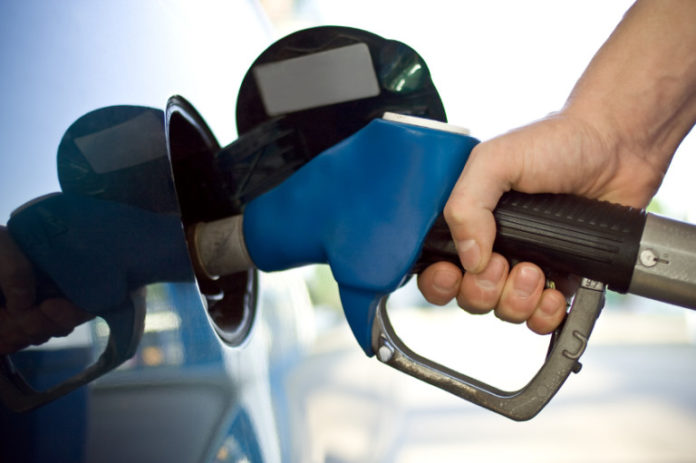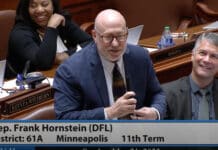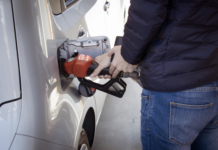State Sen. Scott Newman (R-Hutchinson), Chair of the Senate Transportation Finance & Policy Committee, is urging Governor-elect Tim Walz to reconsider raising the gas tax, saying most Minnesotans vehemently oppose the proposal.
Newman says the gas tax is “out-of-date” and an “unreliable source for increased revenue.”
“One of the big topics we will wrestle with this session is how to fund Minnesota’s transportation infrastructure in the long-term,” Newman said. “While we have made historic investments in road and bridge repair during my tenure as Transportation Committee chairman, we need a sustainable funding mechanism to ensure our vast network of transportation infrastructure is properly maintained and developed.”
Newman says there are other options for increasing transportation funding that doesn’t include a tax hike, including dedicating a portion of the existing sales tax on auto parts to transportation, and giving transportation its “fair share” of overall tax revenue.
“By dedicating a portion of the existing sales tax on auto parts and other vehicle-related services solely to transportation, we could ensure proper funding for our roads and bridges for decades to come without having to revisit the issue each budget cycle,” Newman said, noting that the proposal was given serious consideration last legislative session.
Currently, transportation is largely funded by three sources: gas taxes, motor vehicle sales taxes, and license tab fees. These “user fees” mean the people driving vehicles are contributing a majority of the funding for transportation. However, Newman suggests legislators should look at an approach that would have all Minnesotans contributing to the transportation system, noting that “everybody benefits from a safe and reliable transportation network.”
“If we took existing sales tax revenue and gave transportation its ‘fair share’ of that overall tax, all Minnesotans would be contributing to the transportation system,” Newman said. “Currently, transportation receives between 0.5 and 0.7 percent of the tax revenue; if we increased that share to 1.5 percent, transportation would receive more than $600 million per year in additional funding – a significant increase in total dollars, but a relatively small share of current revenue.”
Within days of the election, Walz said Minnesotans should “absolutely” expect gas tax increase in his upcoming budget proposal.
“You can’t just say you’re not going to do anything in terms of revenue or budgets and you’re going to magically get roads, bridges and transit. So yes, you can expect to see that,” Walz said.
Walz has not specified how much he will seek to increase the per-gallon tax.
During the election cycle, Walz made raising the gas tax a key element of his campaign, suggesting Minnesotans would be okay with the tax hike. However, while Walz claimed Minnesotans are okay with higher taxes, polling from the election cycle showed Minnesotans do not want to pay more at the pump. In a KSTP/SurveyUSA poll from September, 52 percent of those surveyed objected to a gas tax increase.
Newman acknowledges that most Minnesotans “vehemently” oppose a gas tax increase, and hopes to be able to shift the conversation to other “viable alternatives.”
“The reality is additional funding for our roads and bridges will be necessary and it doesn’t make sense to tie that need to a funding source that will become unreliable,” Newman said. “I join most Minnesotans in vehemently opposing a gas tax increase and am hopeful the governor-elect will consider viable alternatives that do not raise taxes and fees on Minnesotans.”

















